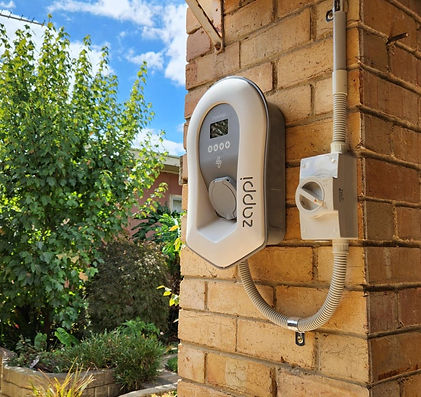How much does it cost to install an EV home charger?
Una delle maggiori differenze tra veicoli elettrici e veicoli ICE è la guida silenziosa.
Tuttavia, Mercedes ha portato questo a un altro livello montando una tonnellata di materiale fonoassorbente e doppi vetri, il che significa che, sulla maggior parte delle superfici stradali, c'è molto poco evidente ruggito di pneumatici o rumore del vento.
Una cosa che vale la pena notare se l'uso massiccio di materiali riciclati come la plastica è stato dragato dall'oceano. Circa 100 componenti tra cui l'isolamento, la copertura del motore, i materiali del passaruota, il rivestimento del vano di carico e la superficie della parte superiore del cruscotto in neoprene, sono tutti realizzati con tali materiali.
Tuttavia, non pensare che questa vettura non sia in linea con il marchio di lusso Mercedes. Il doppio display da 10,25 pollici gestisce il decantato sistema di infotainment MBUX, che può essere controllato tramite comandi touch o vocali, c'è un tetto apribile scorrevole, sedili in pelle con riscaldamento e Apple CarPlay/Android Auto.


Factors that contribute to the cost of home EV charging installation:
1. Specialised Installation
Every home EV charging installation is uniquely tailored to your home and EV charging requirements. Unlike a standard electrical outlet installation, EV chargers require specific expertise and equipment.
2. Distance and Pathway Considerations
The distance between the EV charge point and your main switchboard, as well as the pathway for cables, significantly impact installation costs. Longer distances may require more materials and labour as well as more cable routing, trenching, or conduit installation.
3. Future Cost Considerations
While the upfront cost of installing an EV charger may seem high, it's essential to consider the potential savings and benefits over time. Correct installation ensures optimal performance and safety, reducing the risk of future repairs or upgrades. Moreover, a properly installed charger can integrate with smart technologies, allowing for cost-effective charging strategies based on electricity tariffs or solar power availability, which can actually save money long term.
Benefits of home charging:
1. Convenience:
You won't rely solely on public charging stations, which can be busy or inconveniently located. With an EV charger at home, you can easily plug in your electric car overnight or whenever it's convenient for you, ensuring that you always have range when you need it.
2. Cost Savings: While there is an initial investment in installing an EV charger, it will typically lead to long-term cost savings. Home charging is often cheaper than using public charging stations, especially if you take advantage of off-peak electricity rates.
3. Faster Charging: Home EV chargers offer much faster charging speeds compared to standard wall outlets or trickle chargers. You can expect up to 50km of range for 1 hour of charging with a 7kW charger, or 80km if you have a 22kW home charger.
4. Flexibility: Having an EV charger at home gives you the flexibility to tailor your charging schedule to your needs. You can easily top up your vehicle's battery whenever it's convenient for you, whether it's during the day, overnight, or based on your driving patterns. This also allows you to take advantage of solar aware charging and other factors.
5. Environmental Benefits: By charging your EV at home, you can reduce your carbon footprint and contribute to environmental sustainability.













